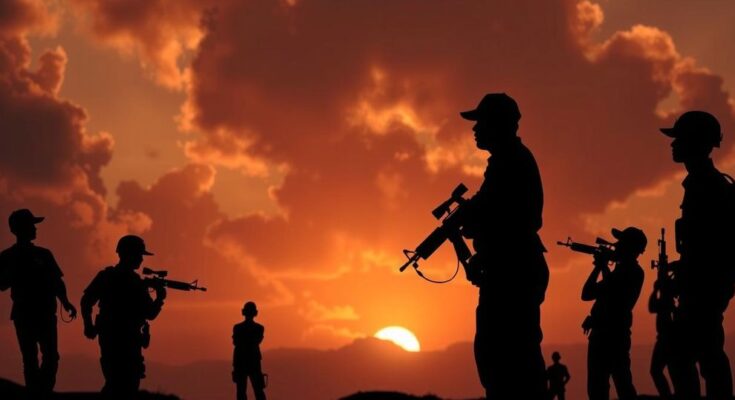Dominican President Luis Abinader cautioned about implementing “drastic measures” to protect national security if a U.N.-backed anti-gang mission in Haiti fails. He highlighted the pressing need for adequate resources to handle the crisis resulting from rampant gang violence, which controls most of Port-au-Prince, endangering stability and humanitarian conditions in the region.
The president of the Dominican Republic, Luis Abinader, conveyed a stern warning regarding potential drastic measures to safeguard national security if a United Nations-supported anti-gang mission in Haiti fails. Speaking at the U.N. General Assembly in New York, President Abinader underscored his administration’s commitment to react decisively in the face of escalating gang violence that has increasingly destabilized Haiti since the assassination of President Jovenel Moïse in July 2021. Currently, gangs exert control over approximately 80% of Port-au-Prince, exacerbating the humanitarian crisis that has left nearly 700,000 Haitians homeless and prompted thousands to flee the country. Abinader expressed gratitude toward Kenya, which is spearheading the mission in Haiti with the deployment of nearly 400 police officers. However, he acknowledged that the current contributions from various nations fall short of the 2,500 personnel required for the mission’s success, raising concerns about the adequacy of resources, as warned by the U.S. government. The president highlighted the necessity of establishing a stable environment conducive for free and transparent elections in Haiti, noting that elections have not occurred since 2016, with a transitional presidential council expected to facilitate them by February 2026. Abinader stated, “Practically one year from the holding of elections, the conditions are still not in place to do so,” reinforcing the urgency for immediate action to avert a further collapse in Haiti. Furthermore, Abinader outlined the internal ramifications of Haiti’s situation on the Dominican Republic, citing substantial pressures on national security and the socioeconomic impact manifested in the healthcare and education sectors, where a significant number of Haitians are involved. He remarked, “The Dominican state has shouldered a high responsibility in the Haitian crisis, far more than should be expected of it.” Recent violent incidents involving gangs in Haiti, including attacks on police stations and the international airport, resulted in significant instability, ultimately leading to the resignation of Prime Minister Ariel Henry. Under Abinader’s administration, there have been extensive deportations of individuals believed to be Haitian nationals, a move that has attracted criticism regarding human rights violations against Haitians and those of Haitian descent. In response to these criticisms, President Abinader asserted the Dominican government’s commitment to protecting human rights, noting improvements in national poverty and homicide rates in recent years. As the situation continues to evolve, the president of Haiti’s transitional presidential council, Edgard Leblanc Fils, is set to address the U.N. General Assembly shortly thereafter, reflecting the ongoing attention to this regional crisis.
The socio-political situation in Haiti has dramatically deteriorated since the assassination of President Jovenel Moïse in July 2021, resulting in rampant gang violence throughout the country, particularly in the capital, Port-au-Prince. This rise in lawlessness has led to a humanitarian crisis, with vast numbers of Haitians displaced and fleeing the country, significantly impacting neighboring Dominican Republic. In light of this turmoil, a United Nations-backed mission initiated by Kenya has aimed to restore order and facilitate elections in Haiti, although the mission’s resources and personnel have proven inadequate so far. The Dominican Republic has been significantly affected by the instability, prompting President Abinader to warn of extreme measures should the international effort fail.
In conclusion, President Luis Abinader’s warning regarding the necessity for drastic measures underscores the gravity of the situation stemming from Haiti’s persistent gang violence and instability. The Dominican Republic’s efforts to support international missions and manage the repercussions of Haiti’s crisis reflect an ongoing commitment to regional security and human rights. As the international community continues to respond to this pressing issue, the actions taken will be crucial in determining the future of both nations.
Original Source: apnews.com




